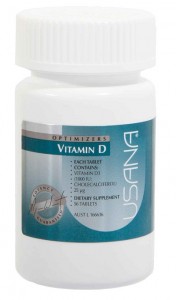
Are you getting enough D in your day?
Written by Ravinder Lilly
Too much sun can cause skin cancer (we already have the highest rate of skin cancer in the world) yet the sun is also the main source of bone-building vitamin D and lots of us in Australia and New Zealand are low on this vital nutrient. Confused? You’re not alone!
Unique D
Vitamin D is fat-soluble (so it can be stored in the body) and it is unique because unlike most vitamins that we get from foods and drinks, most of our vitamin D is produced when a fatty substance in the skin reacts with sunshine. The body then converts this into vitamin D and stores it for when it’s needed.
Around 90 per cent of our vitamin D is produced in this way; just 10 per cent or so comes from foods.
Are you getting enough?
Getting enough vitamin D is important for many reasons including:
- Healthy bones
- A healthy immune system
- Healthy skin health. This may sound like a contradiction as too much sun exposure can trigger skin cancer. But having enough vitamin D and related compounds in the skin may actually protect against UV damage according to the University of Sydney’s Professor Rebecca Mason.
Professor Mason says, ‘From a large Australian study (AusDiab), over 40 per cent of females have low levels in summer-autumn and 27 per cent of males and this figure rises to 58 per cent of females not having enough vitamin D in winter-spring, and 35% males at that time.’
So why are we falling short of vitamin D target?
Professor Mason explains that the values for vitamin D are higher nowadays as they’re based on a concentration of vitamin D where most bone and muscle function is close to normal; this figure is a bit higher than past targets.
Other reasons that vitamin D may be low include:
- There are more people in higher risk groups; for example more older people (who may not get out in the sun much and may not be able to make vitamin D as effectively as younger people)
- More people with naturally dark skin (melanin absorbs the UVB light that converts a compound in skin into vitamin D) and/or who cover up with clothing.
- More obese people (vitamin D gets into fat, but isn’t released until the fat is broken downi).
- More people working indoors and being entertained indoors (i.e. computers, video games etc).
People with osteoporosis and babies of mothers who are low in vitamin D (especially if the babies are being breast-fed) also fall into the high risk group for vitamin D deficiency.
The United States recently increased the recommended daily intake of vitamin D and since our last NHMRC recommendations were made around a decade ago, it looks like the recommended daily levels of vitamin D are set to rise in Australasia, too.
So how can you get more D into your day?
Food and safe sun
Enjoy more D-containing foods such as oily fish (salmon, sardines and swordfish), fortified breakfast cereals, eggs, fortified milk, lean meat and UV-exposed mushrooms.
Getting all your vitamin D needs from foods is virtually impossible so a combination of safe sun and vitamin D-containing foods is wise. But Professor Mason advises, ‘Any old sunlight won’t do. The energetic UVB-rays that make vitamin D are around for most of the day in summer, but only around noon in winter, particularly in southern parts of Australia.’
‘In winter, the sun exposure to arms or equivalent needs to be around noon and for from seven minutes (Cairns) to 30-40mins (Hobart) most days hands, or equivalent area of skin, spread over a week to maintain adequate vitamin D levelsii.
‘The energetic UV that produces vitamin D is not around in early morning or late afternoon. In summer, you risk too much UVA exposure for the amount of vitamin D you make and in winter, in most of Australia, you won’t make any vitamin D early morning or late afternoon’ reveals Professor Mason.

So what about supplements?
‘Vitamin D supplements are suitable for people who are advised not to go outside (people with sun sensitive skin and people who are immunosuppressed,’ says Professor Mason.
‘People with naturally very dark skin may need three to six times this amount of exposure and so it may not be possible to maintain vitamin D levels and you may need to take supplementsiii’.
People taking medications which interfere with vitamin D metabolism or have difficulty absorbing nutrients, plus people taking medicines that affect vitamin D metabolism may also be at risk of D deficiency.
USANA’S Vitamin D
 Commenting on USANA’s vitamin D supplement, Professor Mason said, ‘Vitamin D3 supplements as cholecalciferol provide the same form of vitamin D as we make in the skin and supplements are a reasonable way to improve vitamin D status if more sun exposure is not practical (if you do too much indoors, if you have dark skin, if it is culturally inappropriate and for older people who don’t want to go out or can’t do so).’
Commenting on USANA’s vitamin D supplement, Professor Mason said, ‘Vitamin D3 supplements as cholecalciferol provide the same form of vitamin D as we make in the skin and supplements are a reasonable way to improve vitamin D status if more sun exposure is not practical (if you do too much indoors, if you have dark skin, if it is culturally inappropriate and for older people who don’t want to go out or can’t do so).’
Note: anyone with vitamin D deficiencies should discuss intake levels with his or her physician.
USANA Vitamin D; each tablet contains vitamin D3 (cholecalciferol) 1000 IU/25 micrograms.
Suggested dose: take one table daily preferably with meals.
Vitamin supplements should not replace a balanced diet.
USE ONLY AS DIRECTED. ALWAYS READ THE LABEL.
For more information:
- The vitamin D deficiency Guide: http://www.vitaminddeficiencyguide.com/
- Institute of Medicine of the National Academies (US): Dietary Reference Intakes for Calcium and Vitamin D
- Cancer Council: http://www.cancer.org.au/cancersmartlifestyle/SunSmart/VitaminD.htm
- Sun Smart app for iPhones and iPad: http://itunes.apple.com/au/app/sunsmart/id402707467?mt=8
Please note:
1. Professor Mason and Mr MacWilliam are not paid by USANA and not associated with USANA, in any way.
References:
i Am J Clin Nutr. 2000 Sep;72(3):690-3. Decreased bioavailability of vitamin D in obesity. Accessed 20 February 2012. Available from: http://www.ncbi.nlm.nih.gov/pubmed/10966885?dopt=Citation
ii Cancer Council Australia. Risks and benefits of sun exposure. Last updated 11 September 2011. Accessed 20 February 2012. Available from: http://www.cancer.org.au/policy/positionstatements/sunsmart/risksandbenefitsofsunexposure.htm
iii Better Health Channel. Vitamin D. Last updated 23 November 2011. Accessed 20 February 2012. Available from: http://www.betterhealth.vic.gov.au/bhcv2/bhcarticles.nsf/pages/Vitamin_D?open


